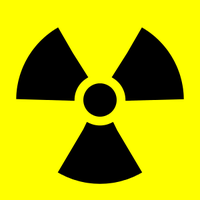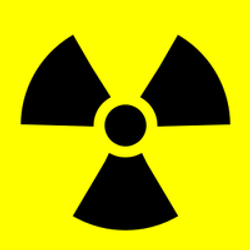HEALTH CONCERNS ON RADIOACTIVE SUBSTANCES
Posted by Manny Y on 7th Apr 2015
Earth quake and tsunami stricken Japan has been continuously having problems with their nuclear power plant in Fukushima. Two workers in the power plant are already hospitalized because of radiation exposure. Presently, radioactive substances are now contaminating Japans food crops and water supplies.

Many countries have banned or strictly testing products imported from Japan for radioactive substances. Acute symptoms after consuming foods that are contaminated with radioactive substances are hair loss, nausea and vomiting, diarrhea, bleeding, central nervous system damage, stripping of intestinal lining and death. These radioactive substances can also accumulate in the body and can cause long term problems like infertility and cancer.
Below are radioactive substances that commonly pollute the environment in an event of a nuclear meltdown.
Radioiodine, also referred to as Iodine 131 is a radioisotope of iodine. In controlled environments, iodine 131 is used in nuclear medicine and other medical treatments. It is also an important indicator for radioactive contamination in the environment. Japans nuclear disaster showed high levels of iodine 131 contamination. Fresh food crops were found to have 22,000 becquerels per kilogram. In one of Tokyo’s water facility, about 190 becquerel per liter was recorded.
If consumed, Iodine 131 accumulates in the thyroid gland and can make the cells to mutate and develop thyroid cancer. Young adults and children are at high risk. Immediate treatment with potassium iodide can lower the risk of thyroid cancer.
Cesium 134 and Cesium 137. Cesium is an element that is actually used in lot applications from electronics, petroleum drilling, atomic clocks and medicine. Cesium 137, in particular is used in cancer treatments, agricultural, sterilization of food and surgical instruments/equipment.
Caesium is rarely encountered and if exposed can cause mild toxic irritations because it is easily excreted through the urine or sweat. However, caesium easily accumulates in vegetative tissue. In Japan, contaminated vegetables reached up to 14,000 becquerels of caesium per kilogram. Daily consumption of these tainted products can lead to involuntary muscle contractions or death.

